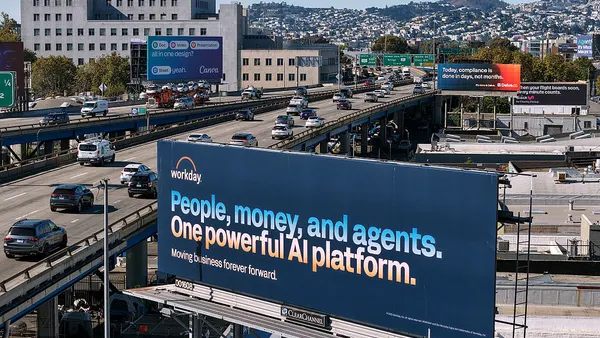Certain deficits in human skills — such as creativity and critical thinking — could hinder the adoption of artificial intelligence tools in the workplace, according to an Aug. 6 report from Multiverse.
Learning scientists identified 13 human skillsets that are critical for successful AI implementation: analytical reasoning, creativity, systems thinking, AI ethics, cultural sensitivity, curiosity, self-regulated learning, detail orientation, adaptability, determination, empathy, tailored communication and effective feedback.
“Leaders are spending millions on AI tools, but their investment focus isn’t going to succeed. They think it’s a technology problem when it’s really a human and technology problem,” Gary Eimerman, chief learning officer at Multiverse, said in a statement. “Without a deliberate focus on capabilities like analytical reasoning and creativity, as well as culture and behaviors, AI projects will never deliver up to their potential.”
Multiverse researchers identified the skillsets by conducting qualitative and observational studies with AI “power users,” as well as insights from upskilling workers in AI use. The 13 human skills “sit alongside technical skills such as prompt engineering, AI model evaluation and AI process modeling” as upskilling priorities, according to the report.
Overall, the 13 skills fall into four overarching categories — cognitive skills, AI responsibility, self-management skills and communication — that help workers effectively implement AI. Put together, the skillsets allow employees to reason, make decisions, seek feedback and ethically use technology to achieve desired objectives.
During the research, for instance, principles related to ethical oversight, output verification and creative experimentation were significant differentiators for AI power users. Upskilling in these areas can help workers move from passive AI use to active innovation, the report found.
Workplace AI use can come with tradeoffs, both enhancing employee ideas but also reducing diversity of thought and the benefits of brainstorming activities, according to a study from the University of Pennsylvania. Human skills remain critical, the researchers said, and employers could face setbacks by not taking that into account.
In fact, 3 in 5 employers say soft skills are more important today than five years ago, according to a TestGorilla report. Using a holistic approach to evaluate job candidates — including their skills, values, personality and cultural fit — leads to better results in the hiring process, most employers said.















